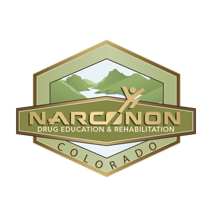My Loved One Just Completed Addiction Treatment… Now What?…

It’s a common story. Your loved one whose addiction has been a major source of stress, anxiety and sleepless nights is finally in treatment and some of the fear you have been experiencing has finally gone.
For the first time in a long time, you can take an hour or two to relax. You may hopefully even get a good night’s sleep.
During the treatment process he or she has the normal ups and downs along with some bumpy days, but ultimately you know they are finally safe. With the help of treatment staff they continue to push through and battle their addiction and the endgame is finally near; they are towards the end of their treatment.
Naturally, you are most likely bubbling over with pride and joy. You finally have your loved one back. Not only do they look like a brand new person but their attitude on life has improved as well.
Then your stomach drops—you realize they are coming home. No longer will either of you have the security blanket and twenty-four-hour support of a treatment facility. They are coming home and soon the self-interrogation begins.
“Should I toss out all of the alcohol in my house? Should I turn the 15-minute drive home into an hour to ensure we don’t go by any liquor stores? What do I do about the house on the corner that always smells like marijuana? Should I go into the gas station with them? After all, they sell alcohol in gas stations! Maybe I should buy a high tech security system and make sure they never leave home… Do I need a sober coach? What about a therapist? Maybe a life coach?”
The questions and anxieties go on and on, especially if your loved one has gone into treatment before and relapsed after leaving. To the families that are facing this challenge here is some advice that has helped countless others in similar situations and may help you if someone you love is completing a treatment program soon.
1. First off it is important to know that it is absolutely ok to be nervous.
Anxiety and fear regarding someone coming home from treatment are very normal feelings to have. Not too long ago your loved one was using dangerous and possibly life-threatening substances. The emotional scars this may have caused you are probably still pretty fresh.
2. Talk to the treatment center.
Involve yourself in the aftercare planning as best you can. Make sure that you set up clear expectations on how your loved one will behave and interact with you post-treatment. This is especially necessary if they are going to be living with you.
It is essential that you remove all drugs and alcohol from the home before they get there. If you personally have prescriptions that have a potential for abuse then go out and acquire a good, solid safe!
3. Have a plan.
Let your loved one know that if he or she for any reason appears to be under the influence after leaving treatment that you will need them to take a drug or alcohol test right away—no questions asked. It is better to establish this before they leave treatment in order to avoid upsets or misunderstandings.
There may be a day they come home exhausted and worn out with bloodshot eyes because they just finished a twelve-hour shift. Most people who have lived with an addict will immediately suspect a relapse. Remember that it is understandable to feel this way. Trust is earned, not given, and your loved one may have spent years breaking that trust. So it will take time to rebuild it.
4. Establish rules.
Call them rules, guidelines, expectations or whatever you like but they need to be put in place before your loved one comes home.
Staying out all night should no longer be acceptable to you but they may assume that it will be back to business as usual. Make sure they understand that it is not. Establish and agree upon healthy boundaries ahead of time so everyone is on the same page.
5. Maintain contact.
If your loved one had a particular counselor or support staff at the treatment center he or she really connected with and trusted during their treatment, do your best to get in touch and maintain contact with that individual.
There may be times that your loved one needs to talk to someone about their cravings or struggles and it is important to understand that that person may not be you. THAT’S OK.
Having a lifeline at a treatment center also gives you someone to call and ask to reach out to your loved one in case you are concerned or see them heading back towards former unhealthy habits.
6. Most importantly set up your own support network and self-care.
Addiction is hard on everyone involved and certainly not just the addict. Make sure you are taking time to care for yourself, whether that means setting aside time to go to the gym daily, getting coffee with friends or trying out a new hobby.
Ensure that you have someone you can confide in and talk to when you are struggling. It doesn’t have to be a counselor. If it is, that’s great, but it could be your pastor, your spouse or simply a close friend. There may be problems that come up regarding your loved one’s recovery and it’s important you have someone who can give you support and encouragement.
Recovery is a process and everyone goes through it differently. Completing treatment is a wonderful accomplishment and one that everyone should be very proud of. However, completing treatment does not guarantee success because that is when the real work truly begins.
It is vital that you and your loved one both prepare yourselves in order to ensure their long-term success.


